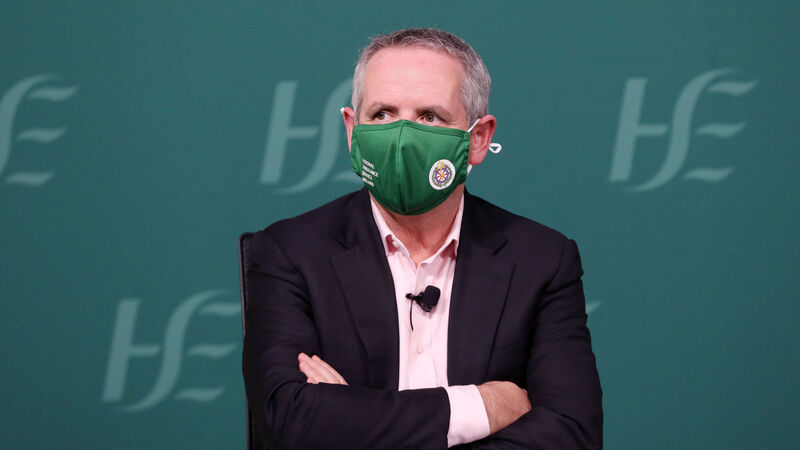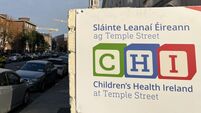Covid-19: We must ‘sustain’ our resolve as situation could ‘turn quickly’

HSE CEO Paul Reid at the weekly HSE operational update urged the public 'Please don’t drop your guard at this stage; keep your resolve and resilience'. Picture: Leah Farrell / Photocall Ireland
The country needs to “sustain” its resolve against Covid-19 as the situation, while improving, could “turn very quickly”, HSE chief Paul Reid has said.
At the HSE’s weekly briefing on Covid-19 on Thursday, health officials outlined the “positive” indicators, which put Ireland among only two countries in Europe showing a fall in Covid-19 infection rates.
“While we’re bucking the trend, we equally know that it could turn very quickly,” Mr Reid said.
“Please don’t drop your guard at this stage; keep your resolve and resilience,” he added.
The 14-day infection rate has fallen from a recent peak of 309 cases per 100,00 population to 213 per 100,000 population this week, the briefing heard.
While case numbers and the number of contacts per case were falling, the number of people in hospital with Covid-19 remained “stable”, Mr Reid said.
On Thursday 307 people were in hospital, with 40 in intensive care.
“We are now seeing hospitalisations spread across the whole country, with higher numbers in Naas, Drogheda, Letterkenny, Cork University Hospital, Tallaght, and Limerick,” Mr Reid said.
Dr Colm Henry, chief medical officer with the HSE, said the latest figures suggested a “stabilisation” of Covid-19 indicators but that the country needed to hold its course to avoid scenarios being observed across Europe.
“While there is some comfort now in that we’ve managed to achieve a situation for the second time of avoiding the worst-case scenario that we saw in other countries, it is important to remind ourselves how quickly this can deteriorate, as we have seen in mainland Europe,” he said, adding that France saw 270,000 cases in one week alone and was now seeing pressure on its health service, as other countries were.
The HSE said it was “ramping up” non-Covid services and rolling out its winter plan to deliver more services in the community through initiatives like integrated care teams that can provide care in the home or in a community setting.
Mr Reid said there was a “steady improvement” in non-Covid services, including cancer services, stepping back up.
Anne O’Connor, chief operations officer with the HSE, added that acute services in September were tracking closely to activity levels for 2019.
“In relation to most of our acute services there’s not that much of a difference, maybe five or six percent,” she said, adding that services in general were keeping up with demand but were not catching up on the “lost” activity created by the three-month Covid-19 pause earlier this year.
Health officials also expressed concern over a “significant” and continued fall-off in emergency attendances and admissions to hospital, which have returned to levels last seen in May.
“We would encourage people who need health services to please attend. All of our services are open if you need to attend urgent and emergency care,” Ms O’Connor said.
The HSE also confirmed it is validating rapid antigen tests for Covid-19, which it expects will play some role in testing in the future although Dr Henry cautioned that sensitivity may not be as high as claimed by manufacturers.





